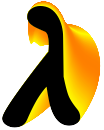| |||||
The purpose of the workshop is to discuss experience with and future developments of the Scheme programming language, as well as general aspects of computer science loosely centered on the general theme of Scheme.
Papers are invited concerning all aspects of the design, semantics, theory, application, implementation, and teaching of Scheme. Some example areas include (but are not limited to):
- Language design
Scheme's simple syntactic framework and minimal static semantics has historically made the language an attractive "lab bench" for the development and experimentation of novel language features and mechanisms.
Topics in this area include modules systems, exceptions, control mechanisms, distributed programming, concurrency and synchronisation, macro systems, and objects. Past, present and future SRFIs are welcome.
- Type systems
Static analyses for dynamic type systems, type systems that bridge the gap between static and dynamic types, static systems with "type dynamic" extensions, weak typing.
- Theory
Formal semantics, calculi, correctness of analyses and transformations, lambda calculus.
- Implementation
Compilers, runtime systems, optimisation, virtual machines, resource management, interpreters, foreign-function and operating system interfaces, partial evaluation, program analysis and transformation, embedded systems, and generally implementations with novel or noteworthy features.
- Program-development environments and tools
The Lisp and Scheme family of programming languages have traditionally been the source of innovative program-development environments. Authors working on these issues are encouraged to submit papers describing their technologies.
Topics include profilers, tracers, debuggers, program understanding tools, performance and conformance test suites and tools.
- Education
Scheme has achieved widespread use as a tool for teaching computer science. Papers on the theory and practice of teaching with Scheme are invited.
- Agile Methogologies
Dynamic languages seem to share a symbiotic relationship with agile software development methodologies. In particular, the dynamic type checking of Scheme clearly benefits from test-driven development, but that same dynamic checking makes the software more easily adapted to changing requirements.
- Applications and experience
Interesting applications which illuminate aspects of Scheme experience with Scheme in commercial or real-world contexts; use of Scheme as an extension or scripting language.
- Scheme pearls
Elegant, instructive examples of functional programming.
A Scheme pearl submission is a special category, and should be a short paper presenting an algorithm, idea or programming device using Scheme in a way that is particularly elegant.
Following the model of earlier workshops, experience papers need not necessarily report original research results; they may instead report practical experience that will be useful to others, re-usable programming idioms, or elegant new ways of approaching a problem. The key criterion for such a paper is that it makes a contribution from which other practitioners can benefit. It is not enough simply to describe a program!
Proceedings
There will be no proceedings per se, but a report from the workshop (including the papers presented at the workshop) will be published as a University of Chicago technical report.
Submissions
Papers must be submitted in PDF format, or as PostScript documents that are interpretable by Ghostscript, and they must be printable on US Letter sized paper. Individuals for which this requirement is a hardship should contact the workshop chair at least one week before the deadline.
There are two classes of submissions, regular papers and short papers:
Regular papers
Submissions should be no more than 12 pages (including bibliography and appendices) in standard ACM conference format: two columns, nine point font on ten point baseline, page 20pc (3.33in) wide and 54pc (9in) tall with a column gutter of 2pc (0.33in). Authors wishing to supply additional material to the reviewers beyond the 12 page limit can do so in clearly marked appendices, on the understanding that reviewers may not read the appendices. Submissions that do not meet these guidelines will not be considered.
Submitted papers must have content that has not previously been published in other conferences or refereed venues, and simultaneous submission to other conferences or refereed venues is unacceptable. Each paper should explain its contributions in both general and technical terms, clearly identifying what has been accomplished, saying why it is significant, and comparing it with previous work. Authors should strive to make the technical content of their papers understandable to a broad audience.
Short papers
Short papers need not present novel research; it is sufficient that they present material of interest or utility to the Scheme or functional-programming community. Scheme pearls submissions should be presented as short papers.
Short papers should be formatted with the same guidelines as regular papers, but are expected to be around six pages in length.
Suitable style files for LaTeX: a class file, a style guide (pdf) and a template.
